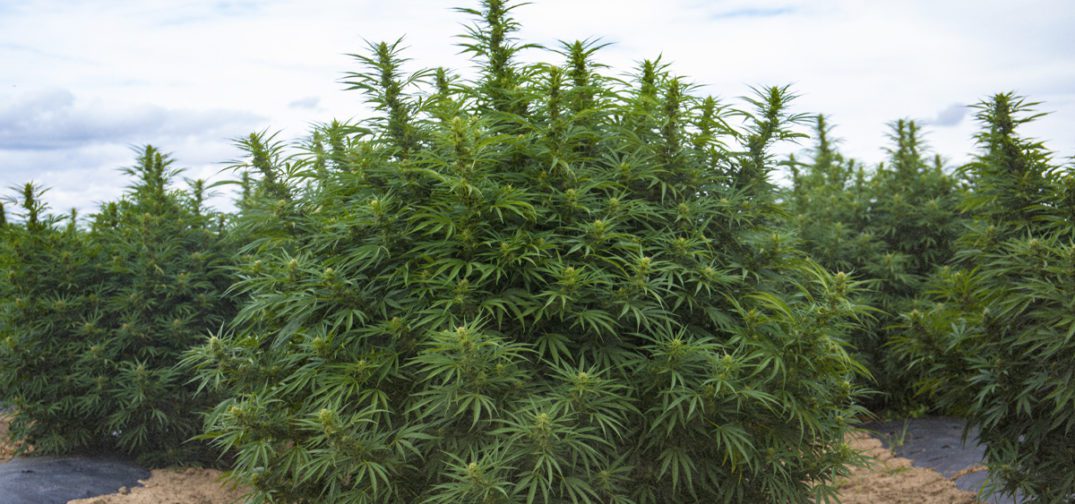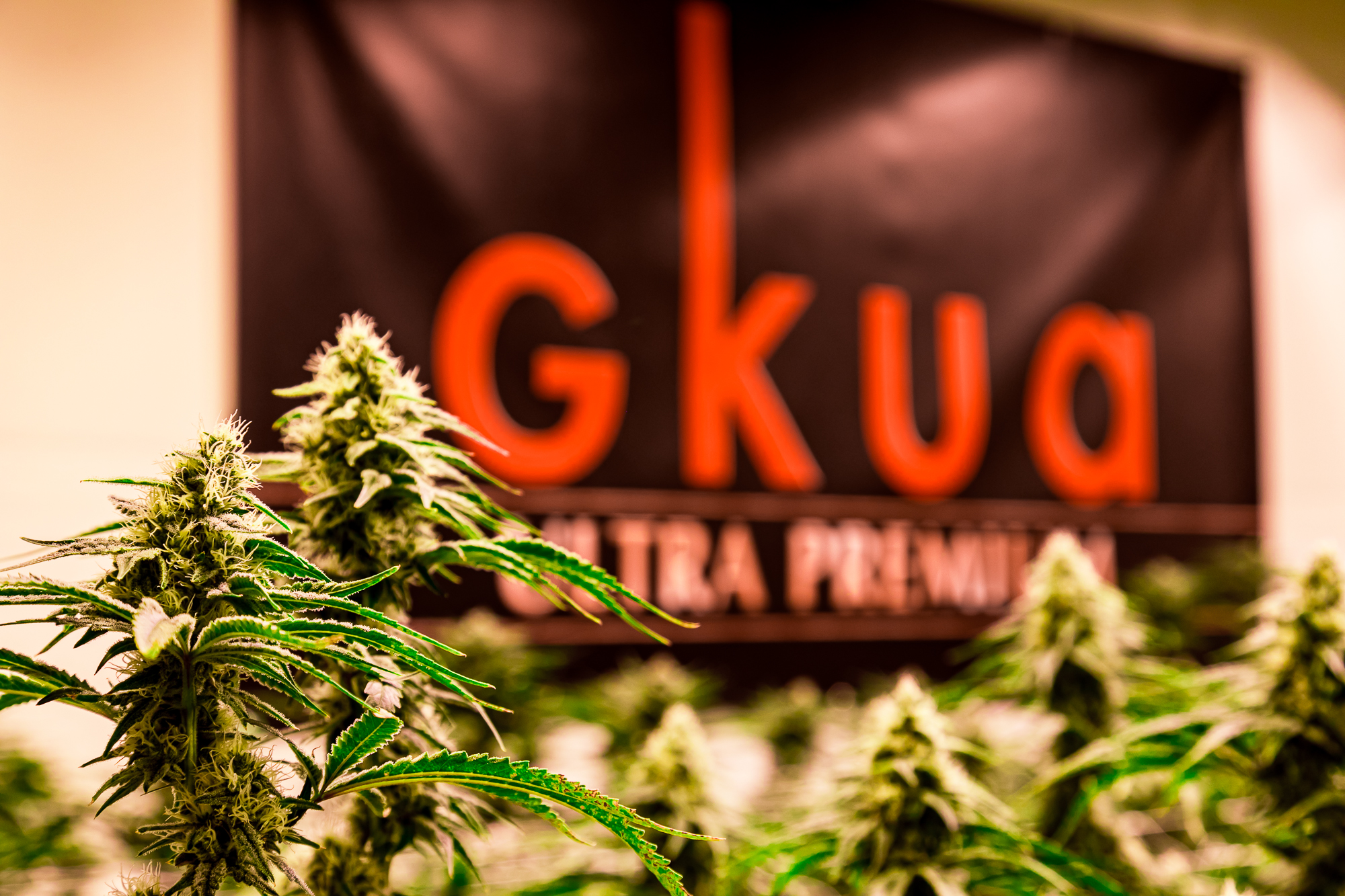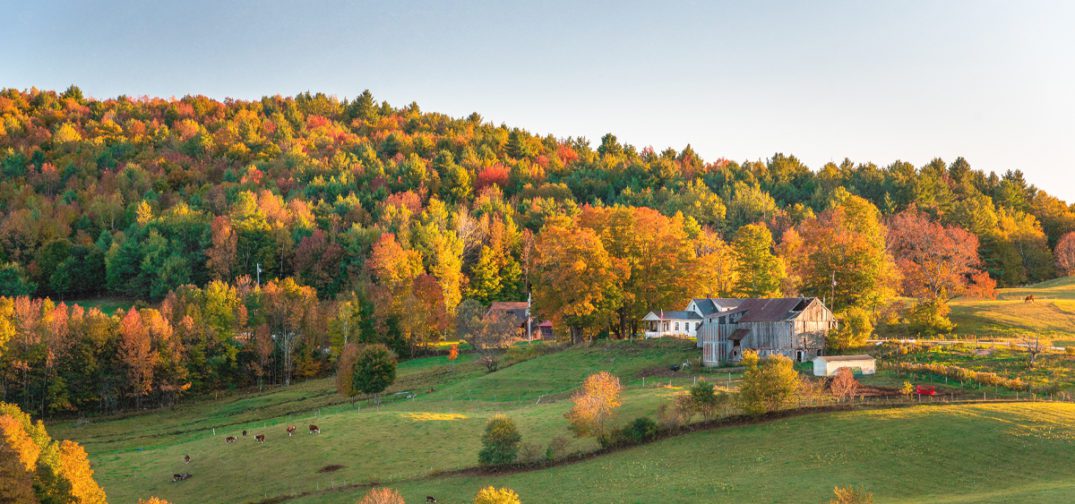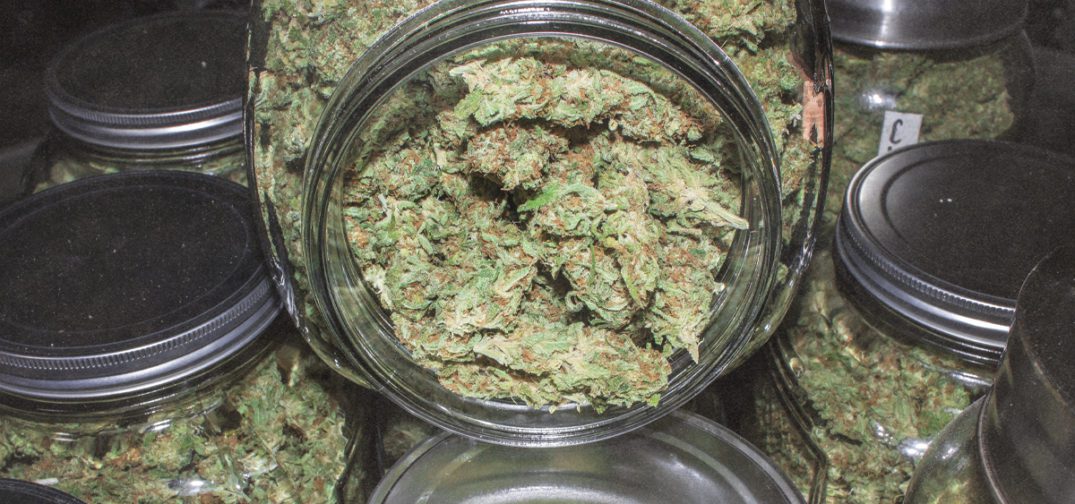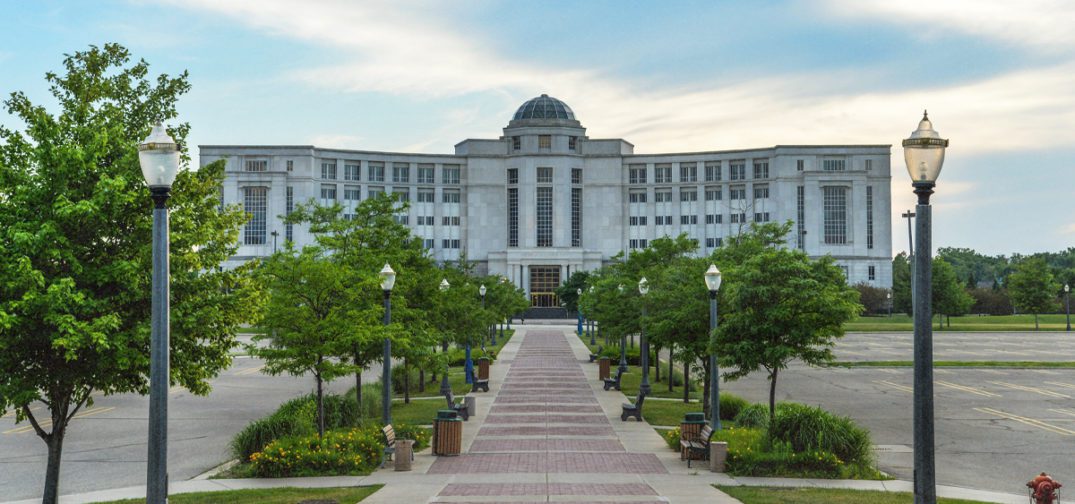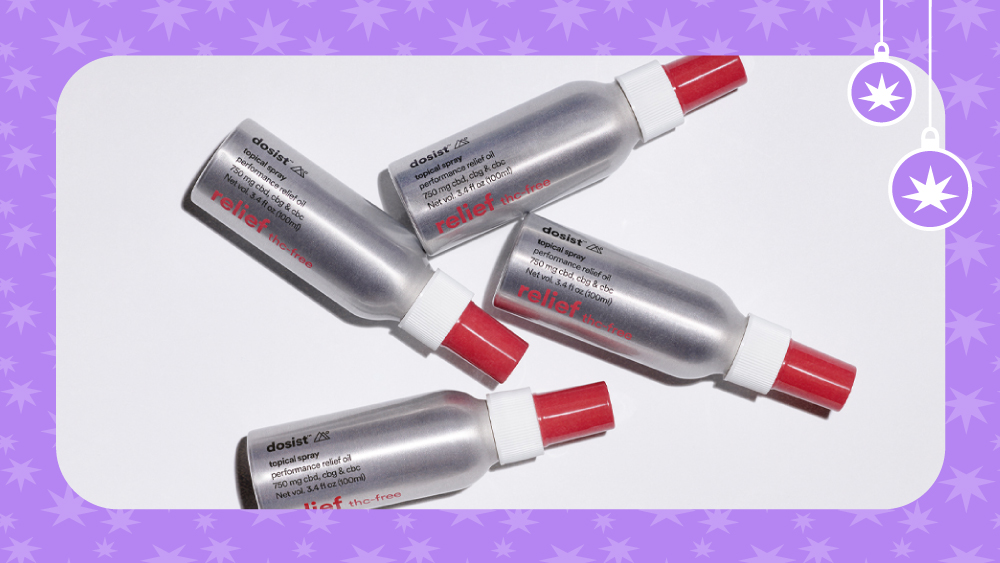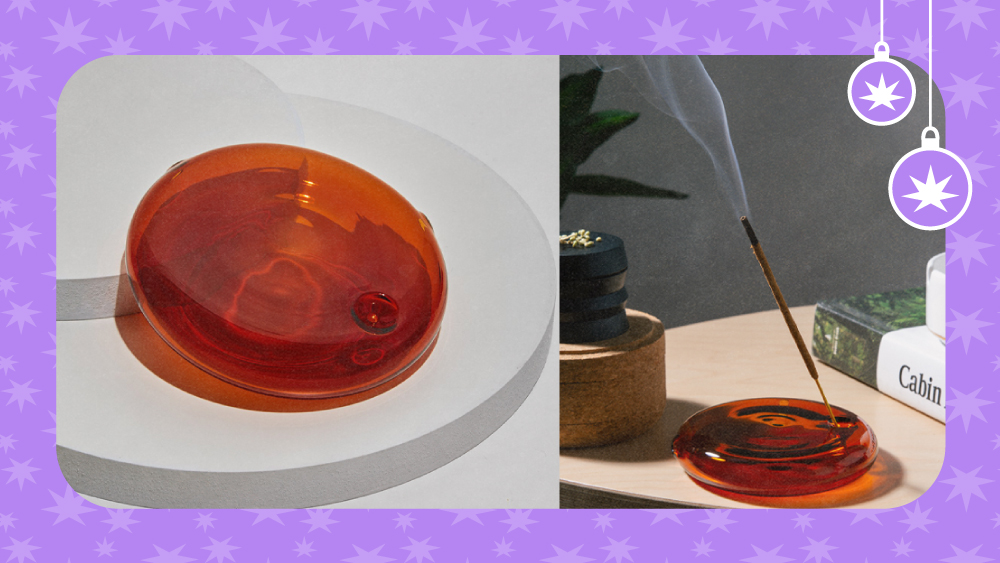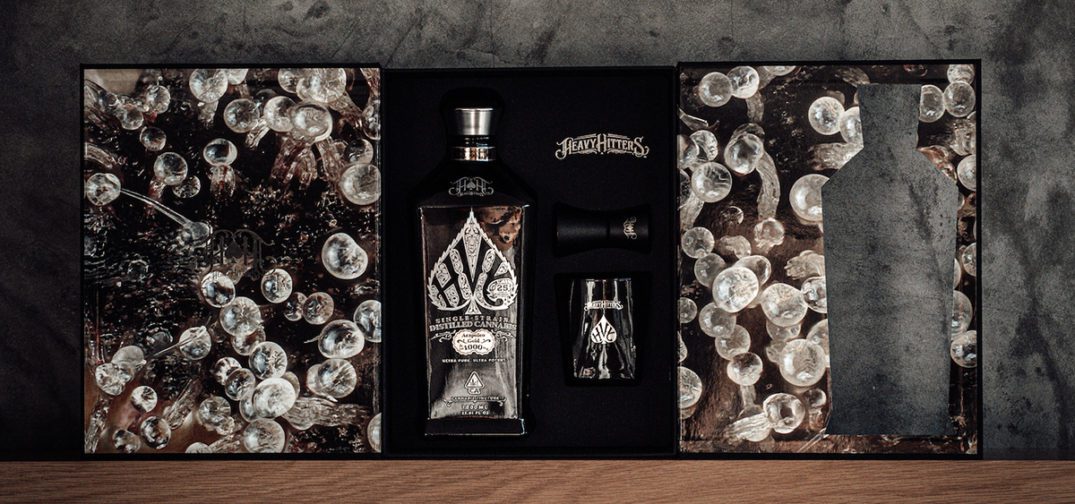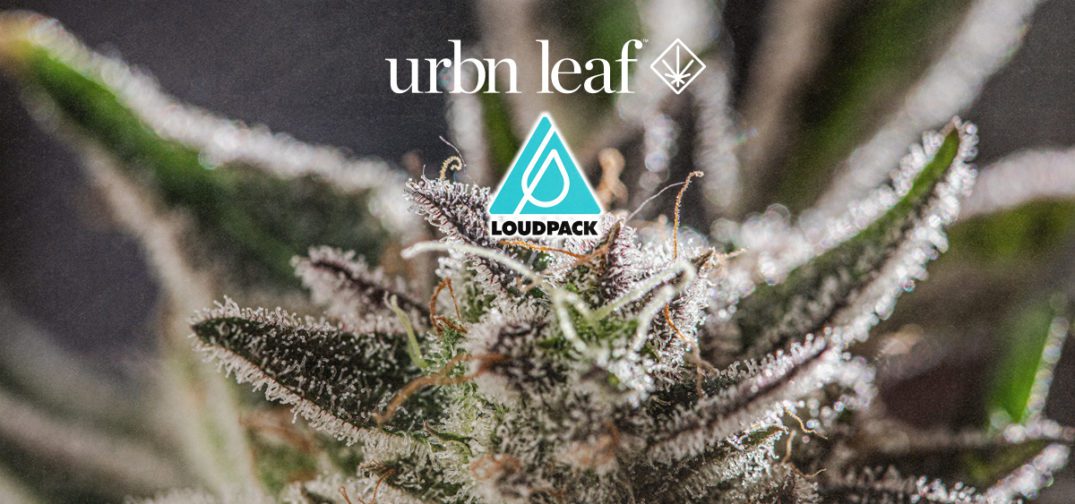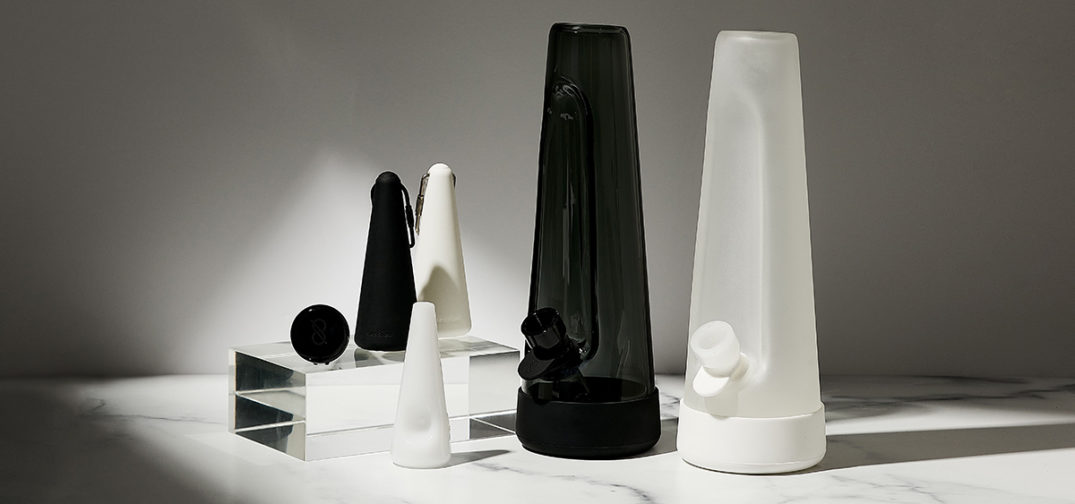Alaska was one of the very first U.S. states to legalize cannabis after voters there embraced the reforms in 2014; the market was also the very first to get state-wide regulations for social cannabis use, although some towns have passed stricter local regulations than others. But while Alaska’s cannabis market is one of the oldest in the country, its immense size and inherent isolation make doing cannabis business more complicated than many other state-legal markets.
In the latest episode of the Ganjapreneur.com Podcast, Chris joins our host TG Branfalt to discuss the early days of Alaska’s cannabis marketplace, Chris’ transition from working in cultivation to the retail side of the industry, and strategies he implemented at The Tree House for improving foot traffic and the overall cannabis retail experience. The interview also covers unique Alaskan cannabis industry experiences, like flying on commercial airlines while carrying tens of thousands of dollars worth of cannabis products — because sometimes that’s the only option — and the benefits of getting to know your customer base on a more personal level.
You can listen to the interview through the media player below or through your favorite podcasts app, or keep scrolling down to find a full transcript.
Listen to the podcast:
Read the transcript:
Commercial: This episode of the Ganjapreneur podcast is made possible by AROYA, a comprehensive cannabis production platform for commercial growers. If you are a commercial cannabis grower, you can use AROYA to level your production workflow. Featuring a combination of precision instruments and powerful software that help you intelligently cultivate, dry and process cannabis, the AROYA cannabis production platform is your ticket to greater yields and consistent quality. Request a quote today online at aroya.io, that’s A-R-O-Y-A.io.
Cara Wietstock: Hi. I’m Cara Wietstock, culture editor at Ganjapreneur and host of our YouTube show, Fresh Cut. The best way to understand cannabis business is to speak directly to those who work within it and Fresh Cut was created to shine recognition on the people who fill these roles. In this interview series, we focus on those with their hands and the dirt, both literally and figuratively, from cultivators to bud tenders, educators to advocates, activists to lobbyists, we aim to illuminate the workers who keep this industry thriving. Enjoy one on one conversations with me and guests by watching along on the Ganjapreneur YouTube channel and follow our social channels to keep up with the latest episodes. Have a great day.
TG Branfalt: Hey there, I’m your host TG Branfalt and thank you for listening to the ganjapreneur.com podcast, where we try to bring new, actionable information and normalize cannabis through the stories of ganjapreneurs, activists, and industry stakeholders. Today, I have finally completed my near five-year mission to get somebody from Alaska on this show. I’m delighted to be joined by Chris Ray. He’s the general manager of Anchorage, Alaska’s Tree House. Chris has worked in the state’s cannabis industry since August of 2016. How you doing man?
Chris Ray: Good. How are you?
TG Branfalt: I’m very, very well. Like I said, it’s great to have somebody representing Alaska finally on the show. I have a lot of questions that I think a lot of people have been sort of asking me about so I finally get to have answers for them. But before we get into that, man, tell me about out yourself, your background, and how you ended up in the cannabis space.
Chris Ray: Yeah, before we hopped on here, like I was telling you, I started doing the retail thing after I went to college. I went to University of Idaho for a year, tried to figure out what I wanted to do with life. Realized a four year school wasn’t really for me so I kind of bounced around between Washington, Hawaii and then I ended up in Missouri. Just started working retail down there for a few years then I got a call from one of my old basketball coaches from back in my high school days and he said that he was starting a cannabis retail in Fairbanks and he wanted my help. And so August of 2016 rolled around, I moved up there, helped him out in the cultivation and then helped him out in the retail. Got that going October, 2016 and then I was with them until about April of 2017.
And then I went over and joined Grass Station 49 in Fairbanks. They started off with just one location. We expanded to two more in Fairbanks, so three total within the first two and a half years. And then we opened a store in Nome shortly after that. And then once we opened up that store in Nome, I got a call from a buddy of mine here in Anchorage who was starting up a retail and he had already had a cultivation going. He’s big in the local hiphop scene, which really kind of gained my interest and my attention. And then that’s when I came down here and started working for the Tree House. And so we just opened up in July of last year, so 2020. Haven’t been open for a year yet. Just been kind working through the kinks and trying to get everything going. That’s kind and where we’re standing now.
TG Branfalt: You say that you started in sort of the cultivation, retail and now you’re helping sort of build a store as a general manager. What were some of the challenges for you when you were making that transition?
Chris Ray: I think the biggest challenge is it’s never been done before, the cannabis retail. Essentially everything that you’re doing and learning, it comes with taking some L’s here and there. Some learning lessons. I think the hardest part though for me, is trying to find like the right people to fit in. Because I think everyone who smokes and who’s a stoner wants to be in the industry but you’ll notice that everyone that smokes and a stoner usually doesn’t have the work ethic or the know-how’s to show up on time or to do things like that. The little simple things. That was a big eye opener realizing that everyone isn’t going to really fit that mold. But once you get around the whole staffing because we’re in Alaska so there’s not very many people.
There are people but there’s not a whole lot like you would say in New York or in California to pick from. Getting around that, once you get around that, just trying to find the product too because we’re a big state, not a whole lot of people. There’s a lot of cultivations but you’re talking about anywhere from when I was in Fairbanks, for instance, having to get stuff from Valdez, that’s a whole day and a half trip, a drive down six to eight hours and then you’re talking about getting the product there. Well now you’re not going to drive back because you’ve been driving all day. Now you’re waiting for the next day to come back. If there’s any construction, which in the summer in Alaska, they call it construction season, stopping all the time. Wintertimes you’ve got the snow, snow storms where you can’t travel through. It makes it really difficult when it comes to the whole transportation and I’d say the hiring aspects of things.
TG Branfalt: Well, I had read once this very unique story about somebody, it was when the Alaska market was first sort of coming online and I guess a lot of places in Alaska, you can only get to by aircraft.
Chris Ray: Yeah. A lot of those other places like Juneau or Ketchikan. My buddy Jason, he runs Frog Mountain CO2 Extraction. I’ve been working with him for a few years now and he’s got a fly to Anchorage twice, three times a month just to get product to people. At that point, now you’re trying to get on schedule with all these retails to see when you can deliver, when you can’t deliver. And if you know anything about ordering and stuff like that, sometimes you got money. Sometimes you don’t. Someone’s like, “Hey, I’m coming up on the 30th,” but you just put in two huge orders for the 25th. It’s like, all right, now I got to kind of juggle these around because he’s only coming up this one time. The next time you’re going to see him is on the 15th or on the 20th. Flying by air is crazy.
TG Branfalt: Has anyone come into any issues with sort of regulatory bodies or anything because cannabis remains federally outlawed and you have to get on a plane with it? Or is there anything like that?
Chris Ray: From my experience and doing the transports and what I’ve run to with the airlines, as long as you’re straight and up front with them and you have all your paperwork and it’s all manifested and you have it on your persons, they’ll go through, they’ll take you to a room, they’ll check you out, make sure everything’s good to go. As long as your paperwork is correct, they send you through. At that point, when I go through TSA, I feel like they’re looking for explosives. All the necessaries that they should be looking for when I’m trying to do my job and run a business and I have paperwork from the state that says I’m legally allowed to fly through or transport this, there’s nothing they can really do about it. Now of course they can stop us and be like, “Hey, we don’t feel this is safe for you flying today.”
But I haven’t seen that happen with anyone. I popped on one of the local airliners with 20, $30,000 worth of concentrates and, “Oh yep. All good.” And I’ve got families on the plane sitting in front of me and behind me and I’m just loading up all this stuff on the aircraft and it is what it is.
TG Branfalt: That’s unlike any, no one else, no other operator in any other state has to deal with something like that. Can you tell the audience a bit more about Alaska’s cannabis law and what if anything sets it apart from some of the ones in the continental United States?
Chris Ray: I think the thing where we’re very different is in California, for instance, when you have medical, you have shops that are accessible to go get your medicine and to do what you need to do. In Alaska medical passed years, years ago, I want to say 96, I could be wrong but it passed years ago and we have no medical setup to where anyone can go and buy their own stuff. Everything’s like, all right, you’re medically set up. Here’s a card. You can grow. But in the state of Alaska, it’s already legal for you to grow so the only thing it’s really doing is if you’re a minor and you need it, then you can have someone grow for you. But you still can’t be like, hey, I need to go to the shop. Here’s my med card. Do I get a percentage off? Or is there a certain selection that I can go to? We don’t have any of that.
In Alaska, if you’re 21, you have a legal ID, you can come shop. Your medical card means nothing. And even if you have a medical card, you can grow but guess what? Me and my buddy, we’re legally 21, we’re allowed to grow in the house. It’s very different in that aspect, you would think there’d be something set up to where people could actually use that medical card to go use it and do something positive with it. But all they can really do is what they’re already allowed to do. But other than that, the regulations, we’re allowed to buy up to seven grams of concentrate per purchase per day. I know in Washington, you’re not allowed to do that. We’re allowed to get these cool little baller jars with seven grams of concentrate, in Washington they only get these little itty bitty ones.
TG Branfalt: Yeah. In Massachusetts, it’s the same way you can’t get more than a gram.
Chris Ray: Yeah. Which, if you have someone who smokes a lot, you’re going to be done with that gram by the time lunch is over.
TG Branfalt: Basically. Now you say that you grow your own and you have to grow indoors. Is there an outdoor growing season for cannabis in Alaska?
Chris Ray: Yeah. We have legal outdoor grows. There’s one in Fairbanks. What is it called? Fox Creek Farms or something like that. Rosie Creek Farms. They’re outdoor. They only harvest once at the end of the summer. That’s all they do. Entire wintertime they just clean up, process, make six packs, make joints. Me personally, I don’t think it’s very lucrative but then again, I don’t have an outdoor grow, so what do I know? But I just know in Alaska, once that permafrost sets come end of summer and it starts getting cold, if you don’t have that stuff planted in time right now where it’s still getting cold out in the springtime, you’re not going to be able to harvest in time. But some people do have the greenhouses that are enclosed, that get the sunlight and then it’s fixated with the AC inside so if it gets too hot, it can cool down a little bit. There are some assisted grows like that. Lots of people that are just locals grow outdoor if they have a big backyard or autoflower plants on the back deck are very popular. I know lots of people who do that.
TG Branfalt: Are you allowed? In some states you can’t sell clones? Is that something you’re allowed to do in Alaska?
Chris Ray: Yeah. Yep. If you’re a retailer and you have a cultivation, you’re allowed to sell your clones. I know some places do it on the regular. Some places don’t do it at all because they don’t want that risk of you taking a clone and going home and be like, oh man, you gave me spider mites or oh man, I got PM. And I didn’t get PM till I brought home this clone. And then they blame it on the retail or the cultivation for that matter.
TG Branfalt: Got you. We’ve talked about some of the challenges that you face, when I asked you earlier about the flying and that sort of stuff, what are some of the unique benefits to you think running a cannabis shop in Alaska?
Chris Ray: I feel like you get a lot more personable with the customers because you have your select fan base, not fan base, but customer base that like your store. In California, I’d imagine you’d probably have somewhere closer to 500 to a 1,000 transactions a day at a busy shop in town. You’re probably looking at like 200 to 400, maybe. Those people that are coming in, you’re seeing the same faces every day. You’re able to get up close and personal with those people, learn about them, really find out what they’re like and what they’re looking for and really cater to their needs versus just on a huge, corporation scale, buying everything on the map that you can because it sells or because the computer tells you that it’s doing good. I’d say that’s one of the main, big benefits about being in Alaska.
TG Branfalt: Well, and you talk about the computer and you do use data at the Tree House and could you tell me a bit about how you use that data and how that data translates to enhance the customer experience?
Chris Ray: Yeah, so right now we use GrowFlow for a point of sale. I started using it back in, I want to say 2018 is when we switched over at Grass Station when I was there. My biggest thing for a bud tender to come in and to use the system is I need it to be simple and I need it to be like their iPhone for instance or their Android. They can get on it, they can find their text messages, type it out. It sends, it’s done. When we use GrowFlow to find out those analytics and that information that we need for the retail, using their insights tool that they have to tap in to see all right, when are our most transactions going through? Is opening up at 8:00 AM on Saturday, Sunday worth it?
We found out that it wasn’t on the weekends for us but Monday through Friday we have a bunch of early risers that are there right at 8:00 AM as soon as we open up the doors, almost like getting their morning coffee. From that aspect that really helped us tap in with that and get that opened up because we were wasting a bunch of payroll hours on certain shifts and certain days where we had three people scheduled to where we look at GrowFlow and say, “Hey, from noon to 1:00 you’re only doing this much. Maybe you only need two people instead of three.” It’s been really good in that aspect.
TG Branfalt: Was it surprising to you that you had a bunch of people sort of waiting outside at 8:00 AM during the week?
Chris Ray: For me, no, because when I was in Fairbanks, that was one of the first big changes that I did was I was like, “Hey, it’s cool to open up at 10:00. I get that but there’s people who wake up at 6:00 AM that run out of weed the night before, wake up at 6:00 AM and only have a bowl and they got to be at work at 9:00 so when we open up at 8:00 they just got their coffee. Now they’re here. Let me get a couple of pre-rolls real quick.” Or some folks only have a 30 minute lunch so when they get on a lunch at 12:00, they don’t want to spend 10 minutes driving to the shop, waiting in line for five to 10 minutes and then trying to whizz back to work. If they can come in at 8:00 AM and get what they need, now they can enjoy that lunch that they have at 12:00, smoke that pre-roll. All right, I got 10, 15 minutes to eat my food now and to recover and to go back inside.
That was one of my big eye-openers right there and kind of why I knew it would work. It was just on the weekends. People go out Friday night, get hammered or whatever they might do, smoke a whole lot and then they don’t wake up till 9:00, 10:00 AM the next morning, especially if it’s their day off.
TG Branfalt: Yeah, nowhere in New York, we just went legal we don’t have shops yet and so we go to Massachusetts but they don’t open in Massachusetts until at least 9:00, most of them 10:00, 11:00. I wonder how much they might be doing the same thing you are trying to figure out when the best time for them to be open. Is there any other way that using the data has changed your operations?
Chris Ray: Yeah. With the top sellers and the top suppliers, when I first started using it, it was top brands. And then I know I talked, I can’t remember who I talked to within the company, but I was like, “Hey, like we really and use the brands portion. But if you could make it top suppliers, that would be 10 times helpful.” Because everything that pulls in through Metrc is going to pull the supplier name and the cultivation. Off the rip, if you can do something with suppliers that are doing the best, that’ll tell me which ones I need to really order from. And then that really helps out with your whole ordering on a big scale. You know who you need to spend what money with or who’s getting the large orders and who’s getting the smaller orders because a cultivation might have eight strains but only one of them is selling really well in your shop, which there’s nothing wrong with that. I just know that I need to buy lots of that one and have that one so it’s never running out because that’s one of the top five sellers.
Same thing with the products, whether it be a vape cartridge or shatter live resin, whatever it might be. I really might like refined and live resin but if it’s only selling 2,000 to $3,000 worth of stuff in the shop per two weeks, but Frog Mountain or someone else is selling five to six and that’s not my favorite and that still tells me that I need to go with Frog Mountain a little bit more versus what I like, which at the retail side, that’ll kill anyone quicker than something else was just ordering what you like. It’s like going to a restaurant. There’s 20 things on the menu for a reason. You know what I mean? You might not like pasta but someone else might come in and that’s what they’re looking forward to.
TG Branfalt: You’ve been in the industry since, for basically for what? Seven years now or six years.
Chris Ray: Yeah, I was Pakalolo’s first employee.
TG Branfalt: What do you think is or what have you noticed is, through the data, is the most popular sort of form maybe not brand, but is it flowers? Is it concentrates? Because state by state it differs.
Chris Ray: Pre-rolls.
TG Branfalt: Pre-rolls.
Chris Ray: Yeah, I would’ve thought, me personally, I love buying flower and rolling it up myself but there are so many people on go in Alaska, whether they’re going fishing, camping, whether they’re driving on a six hour trip to go somewhere up north or going on a road trip. Because everywhere in Alaska, you got to drive to get there. You’re looking at no less than an hour drive somewhere. I feel like people just traveling a lot and being on the go, those six packs and those four packs that we sell and just pre-rolls and all just take over the market. There’s lots of good flower out there and there’s lots of good concentrates, but people from concentrates there’s only a select few that use them.
TG Branfalt: Yeah. You mentioned people having to travel and as we discussed before we went on here, Alaska’s one of those places that I really would love to visit. Very much considered moving there at one point. What portion of your customers are tourists? And what role does tourism play in your bottom line ultimately?
Chris Ray: When I was in Fairbanks, tourism played I’d say during the summertime about a good 30 to 40% of your customers are tourists.
TG Branfalt: That much.
Chris Ray: Because you got people coming up. They’re trying to just see what it’s like in the summertime, trying to enjoy themselves. In the wintertime, I’d say it dies down a little bit because not many people want to come deal with the cold but they want to see the lights, especially in Fairbanks. Now, when I got to Anchorage, we kind of opened up right before the pandemic so the whole tourism thing, it really hasn’t kicked into full gear or I don’t even know if it will this summer. I know Alaska’s offering the vaccine to anyone that comes to Alaska that wants to get it. That might bring some tourism up. But at the Tree House, I really haven’t seen that in full scale yet but from Fairbanks in that summertime, I’d say a good 30 to 40% in the summertime. And then probably about 20, maybe 25% in the wintertime. But a lot it’s just your diehard locals that want to come through and support local businesses.
TG Branfalt: Do you guys have that corporate culture up there that have sort of permeated in other states?
Chris Ray: We have a couple of shops up here that have kind of taken that bigger, all right, we’re going to take a larger footprint. We want three cultivations. We want four retails. There’s a couple like that. Not a whole lot. I’d say for the most part with us being in Alaska, everything still seems small craft for the most part. But I hope it doesn’t come in here like that.
TG Branfalt: No, you’re super fortunate because the idea of an entire market being a craft market is it’s really unheard of down here.
Chris Ray: Now, there are a lot of cultivations to where I feel like there’s a lot more midgrade weed that it outweighs the good weed that’s out there for sure. And some of those guys that have two, three cultivations, that they’re putting out a lot of mid grade stuff. Those smaller guys that only have the one cultivation, sometimes they get overlooked.
TG Branfalt: And you find them through data, right?
Chris Ray: Oh, you have to, you have to, yeah.
TG Branfalt: You mentioned that the Tree House just opened around the time that COVID hit. The pandemic obviously didn’t change your operations that much at the Tree House. But when that did hit, what did you have to do? What did the industry have to do in Alaska to deal with that?
Chris Ray: The industry actually opened up curbside pickups. They didn’t open up for delivery but they did allow us to do some curbside pickups. Us at the Tree House where we’re at, we didn’t feel comfortable doing the walking outside with product and dropping it off to people. We kind of just went with the whole social distancing, cleaning on the hour, every hour, wiping down everything. Thankfully with our shop, we only have about 10 to 12 employees so keeping everyone safe and healthy for the most part, we were good. We didn’t have anyone break out with any cases or anything like that.
But the industry as a whole, with them doing the curbside pickup, I feel like it helped out a lot of shops because a lot of shops don’t have the floor space that we do to where people can come in and be distanced. For them to walk out real quick and all right, here you go, boom, boom, boom. You already paid for it. All right. Thank you. Make it real quick for them. I feel like it made some of the customers and the consumers feel safer about coming to get their product but once it kind of laxed up a little bit, I feel like people they’re looking forward for things to opening back up and being able to come back in and see the big jars of weed and smell them and have a more hands on experience. Because I feel like that’s why most people come to the shop is to have that hands on experience.
TG Branfalt: Yeah. It definitely had to sort of change the way that people were buying cannabis. Did you notice any sort of?
Chris Ray: Yeah, we thought sales might slow down a little bit because people not wanting to leave the house or whatever it may have been but with us being an essential worker in the state of Alaska, business stayed the same if not got better. A lot of people came out, they were willing to spend more money because they only wanted to come once or twice a week versus the four times they were coming. You had some people who were just at home more so they weren’t going out as much so they were smoking more. I’m sure anyone who’s a smoker knows how that goes. If you don’t have to leave the house or go check in or meet with anyone, you’re just smoking up because it’s there. No, business stayed pretty steady. Pretty good. It was a good time. It definitely had some learning lessons as far as how to pivot when a pandemic hits. That was definitely my first time working through something like that. Just following the guidelines of the state of Alaska and stuff like that.
TG Branfalt: And as general manager, you were the one that basically had to implement all this stuff.
Chris Ray: Yeah. And it’s tough, when some places are going overboard with it to where they’re only allowing five people in store at a time to where some shops were like, all right. people can come in as long as we’re distanced. Kind of putting it on the bud tenders a little bit like, “Hey, if you see it getting packed in here, ask some people to wait outside in the hallway.” But thankfully our bud tenders are pretty good. They’re pretty quick. Keeping the constant flow within the shop and we have an entrance one way and an exit the other way. Just kind of keeping that traffic streamlined and not having a whole lot of people pass by each other was a good thing.
TG Branfalt: Has the pandemic affected sort of your ability to keep, get or retain the employees because down here it’s, everybody is hiring all the time now because the unemployment check is good. Has that been something that you faced as well?
Chris Ray: No. The only thing that we really face is some employees they might get a job offer from a job that offers them medical benefits or something like that, to where it’s like, “Hey, I’m going to go take this job because I need the benefits,” or, “Hey, I’m going to go take this job because I only have to deal with five people now instead of 200.” But never did I have anyone be like, “Hey, I don’t feel safe working because of the pandemic or COVID or anything like that.” Like I said, we have a lot of space in our shop so even the bud tenders, from register to register, there’s a good four to six feet. And then from the customer to the employee, it’s already a good four feet. Just add another two feet to that, I feel like it made everyone feel pretty safe.
TG Branfalt: It’s good to hear that you guys did particularly well, just with health and being able to manage the pandemic. One of the things that I always found interesting about sort of Alaska’s cannabis law was that they were early adopters of allowing or eventually allowing social use. And a lot of states have since then either enacted their own law or included it in their own reforms. How do you think lounges will affect the industry?
Chris Ray: I’m very curious to see how it’s going to go. One of the first ones just opened up in Fairbanks but I don’t know if you know but it kind of varies from city to city with the rules on which you can consume. In Anchorage, they put it out to where, all right if you get an endorsement for the onsite, you’re only allowed to consume edibles. Well, in Alaska, the max for edibles is 50 milligrams per package. Exactly. I don’t see very many people be like, “Oh yeah, I’m going to go over here today and go buy some cookies and go sit down and eat these cookies.” I just don’t see that being lucrative to anyone. But in Fairbanks, they have it to where you can buy up to a gram of flower from that place and you can smoke it there.
The place in Fairbanks that’s open, they have, you can walk in there, there’s a cafe, TVs, it’s an old Chili’s building so kind of imagine a Chili’s. Walk in there, you get you your coffee or your smoothie or whatever, you buy a pre-roll, one gram pre-roll or buy one gram thing of flower and you can roll it up yourself. Smoke that and then leave. I’m just kind of curious though, if cops are going to sit around the corner, like they do at new bars when new bars open up or something like that and kind of camp out. I think it’ll be cool but I’m very curious to see how it’ll all pan out in the end.
TG Branfalt: I love the idea of an old Chili’s being able to smoke weed at an old Chili’s.
Chris Ray: Yeah. It’s got to grow in there. It’s got a little cafe and then they got the retail on the other side. It’s pretty big.
TG Branfalt: That’s great use of space, man. There’s an old Pizza Hut here. I hope they do the same thing here. Are you guys planning? You said you have a big space, are you guys planning to try to get that endorsement?
Chris Ray: I think if Anchorage were to ever change it to where you could smoke flower or consume concentrates, then I think it would be worth the conversation but just how it right now with just the edibles I don’t think it makes sense because you have to have a state of the art ventilation but I don’t know why you’d have to have a state of the art ventilation if there’s only edibles allowed. It just doesn’t make sense right now.
TG Branfalt: Is the beverage game strong up there?
Chris Ray: In comparison to Washington, it’s pretty weak or like California it’s pretty weak. There are a couple of good beverage companies up here, like Fire Eater, they make a few different sodas. Red Run makes a lemonade that a lot of people tend to like but other than that, there’s really not very many drinks. And again, that counts as an edible so the entire soda can only be 50 milligrams. I know most people are looking for a 100, 250 milligram drink because they want to drink half of it and store the rest of it for later or something.
TG Branfalt: Yeah. In Michigan when I was in Michigan, the max was actually 10 milligrams.
Chris Ray: Wow.
TG Branfalt: Yep. On a beverage. And that was actually medical too. But then you could get at the same time, you could also get basically syrup that was 500 milligrams a bottle and that was a good time.
Chris Ray: Yeah. We have the syrup but again, the syrup it counts an edible so it can only be 50 milligrams. There’s a public comment out right now to raise that from 50 to a 100 to see how that goes. I’m hoping they do. Enough people have voiced their opinions about it. I think that’s on the next meeting or the next agenda to see if they’re going to push that through. And if that does, I think that’ll open up the edible game a little bit to where more people want to come in and experiment with edibles and try them. Because I know right now, 50 milligrams to a 200 pound man, it’s really, it’s not going to do much.
TG Branfalt: Yeah. On the flip side though, if you’re worried about police also sitting around outside, you get someone who’s not used to it at all and 50 a hard.
Chris Ray: It’s a good amount.
TG Branfalt: It’s a hard ride.
Chris Ray: For sure. For sure.
TG Branfalt: You’re a young dude in this industry, you’ve been in your position now for a little under a year but you’ve been in the space since 2016, really at the beginning in Alaska. What’s some advice that you would have for someone looking to get into the industry, man?
Chris Ray: Be willing to come in and get your foot in the door any way that you can. When I first came up, I came up to help run the retail so I was the assistant store manager. When I left there, I had to go to a new company and just to get my foot in the door there, I just came in as a packager. If you’re good at your job and you can voice your opinion here and there and the right people are willing to listen, they will. But that would be my biggest thing is just be willing to get your foot in the door some way. A lot of people don’t want to come in and bud tend or package but a lot of the people that I know today that are in their top positions at certain companies within the state of Alaska, they all came in and they bud tended for a year, a year and a half, they packaged or they watered and trimmed for a year.
They did the little things to kind of study the people around them moving and making the bigger decisions so when the time came to where they needed someone else to make those decisions, they kind of already been watching and it’s a lot easier to teach. I feel like a lot of people come in on their high horse and want to be a manager or a key holder, someone of importance right away instead of coming in and just taking it easy and learning a little bit. It’s a brand new industry and a lot of places there’s a lot of room to grow and companies are just going to keep popping up right and left. If you’re doing your job at the one place, and they got nothing but good things to say about you, a lot of these other places are going to come to you, knocking at your door, looking to build with you instead of just having you be someone come in, making 15 an hour, showing up for 30 hours a week and clocking in and clocking out.
TG Branfalt: And maybe have showed up on time, right?
Chris Ray: And you hope so. Man, you’d be surprised, dude. You’d really be surprised.
TG Branfalt: I worked in the bong industry for a very long time, you can’t be surprised.
Chris Ray: Man, it’s just like, people want more and they want to raise or something but you can’t show up on time six out of the six days out of the week, seven days out of the week. It’s really not hard to show up five minutes before your shift. If you’ve got it to where you’re flexible and you can show up whenever, then by all means do that. But usually when you’re a bud tender or a packager, it’s like, hey, your shift starts up 4:00 so be ready to work at 4:00, not show up at 3:59, take your hat off, take your jacket off, go use the bathroom and then by the time you come out in front to count your drawer, it’s 4:10. It’s like, dude, where you been?
TG Branfalt: That will not get you far in the cannabis industry in Alaska or anywhere else I don’t think. Where Chris Ray can people find out more about you and more about The Tree House?
Chris Ray: All of my social medias are @shawnhemp_, that’s Shawn, S-H-A-W-N-H-E-M P_. That’s my weed moniker. I’ve been rolling with it for a little bit now but that’s pretty much where I post anything that I like, local cannabis, lots of buddies of mine that grow lots of rec stuff that I try for the first time, stuff like that. I’m pretty active on there. But the Tree House, all of our social medias are TheTreeHouseAK. And then we have our website, thetreehouseak.com. That pretty much has our deals, our menu, what we’ve got going on. We try to keep that up to date. And then just story on Instagram for the Tree House is pretty active and always shows what’s going on in the store and stuff like that.
TG Branfalt: Well, if I ever make my way to Alaska, I’ll know where to land the plane.
Chris Ray: Yeah. If anyone is coming to Alaska and they want to see some shops or smoke some good weed, come hit me up, shoot me a message on Instagram, reach out. Everyone in Alaska is super friendly, man. That’s the one thing I love about it here. It’s not like going to Vegas or California, there are some sheisty people in Alaska, don’t get me wrong. But for the most part, everyone who is involved with the weed game, they’re pretty good people.
TG Branfalt: Well, I really thank you for taking the time out and coming on the show and giving me this sort of perspective and insight because it’s been a long time that I’ve been trying.
Chris Ray: I’m surprised it took you five years. That’s crazy to me, man. There’s two or three podcasts up here that talk about marijuana on the local scene. There’s 30 shops. I’m just, I’m surprised no one’s reached out.
TG Branfalt: You guys are sketchy of us mainlanders.
Chris Ray: Oh, see man, I learned all my experience down there on the mainland. I was right down between Kansas City and St. Louis for about three, four years down there in Columbia.
TG Branfalt: Columbia. I’ve never been, man. I’ve never been.
Chris Ray: Yeah. It’s an interesting place, man. It’s like a tunnel between Chicago, Memphis, Kansas City and St. Louis.
TG Branfalt: Chicago’s a great city.
Chris Ray: It’s right where the University of Mizzou’s at. A lot of people come through there, a whole lot of different walks of life.
TG Branfalt: That’s Chris Ray. Thank you so much again. Hopefully you can keep me posted on whether or not that push works to get the level of THC in edibles raised. And hopefully we’ll talk again soon, man. I really appreciate it.
Chris Ray: Yeah. Yeah. Reach out whenever.
TG Branfalt: You can find more episodes of the Ganjapreneur.com podcast in the podcast section of ganjapreneur.com, on Spotify and in the Apple iTunes Store. On the Ganjapreneur.com website, you’ll find the latest cannabis news and cannabis jobs updated daily along with transcripts of this podcast. You can also download the Ganjapreneur.com app in iTunes and Google Play. This episode was engineered by Trim Media House. I’ve been your host, TG Branfalt.


